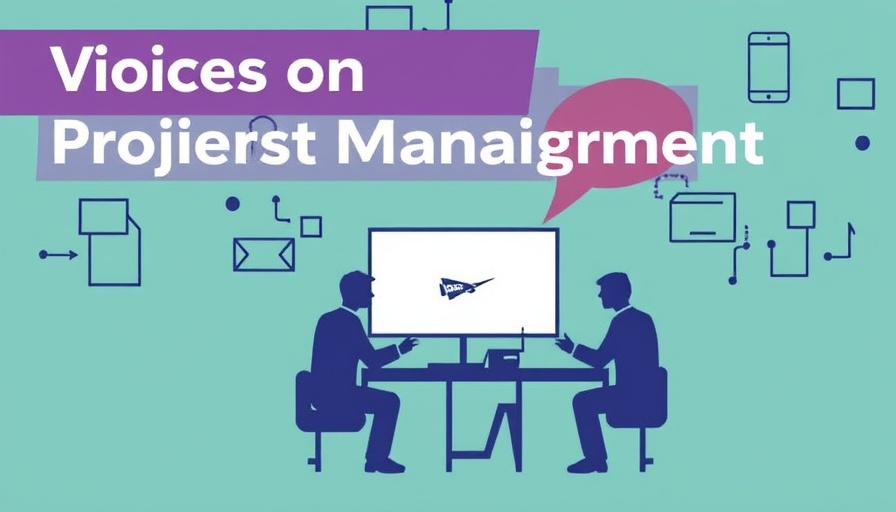
The Evolving Landscape of Project Management
Project management has undergone substantial changes in the last few decades, particularly with the emergence of Agile methodologies. For CIOs, HR leads, and business process managers, understanding these shifts is essential not only to stay competitive but also to foster an adaptable work environment that meets changing business needs. Traditional project management often relied heavily on rigid planning and a waterfall approach, where each phase depended on the completion of the last. This method, while structured, often led to frustrations in fast-paced industries where agility and flexibility are paramount.
Agile Project Management: Flexibility at Its Core
Agile project management, in contrast, emphasizes continuous improvement and iterative progress. This methodology allows teams to respond swiftly to changes, prioritize tasks effectively, and collaborate dynamically, which is critical for any organization aiming to thrive in today’s volatile market. The benefits of Agile include increased customer satisfaction, higher product quality, and better risk management—each aspect resonating well with stakeholders, including CIOs who seek efficient and effective results.
Emphasizing Human-Centric Approaches
In Agile project management, a crucial aspect is the human element; it's about empowering teams and fostering a culture of collaboration. For HR professionals, this translates into adopting strategies that support team dynamics and enhance communication. Using Agile principles, HR can facilitate gatherings that focus on feedback and reflection, enabling teams to iterate processes and outcomes. These practices not only boost morale but also improve overall productivity.
Diverse Perspectives on Agile Implementation
Implementing Agile is not without challenges. Many traditional organizations encounter pushback when transitioning from long-established management practices. However, a growing body of evidence suggests that success stories abound, highlighting that the journey can differ significantly depending on the organizational context. While some firms plunge into Agile transformations with full enthusiasm, others adopt a more gradual approach to ease inertia among team members.
Insights from Industry Experts
Voices from industry leaders reveal that continuous learning is a cornerstone of Agile success. Consider the experiences of CIOs who have led agile transformations; many underscore the need for consistent training, including Agile project management courses that empower teams with the necessary skills. In this light, investing in leadership training and coaching can yield long-term benefits, enhancing the team's ability to adapt and innovate.
Future Trends in Project Management
Looking ahead, the integration of technologies such as artificial intelligence and machine learning into project management is set to further revolutionize the field. CIOs and business process managers should embrace these innovations, as they promise to enhance data analysis, automate routine tasks, and improve decision-making processes. Understanding these trends now will prepare organizations for the demands of tomorrow.
Taking Action Towards Agile Adoption
For organizations considering Agile project management methodologies, the first step is to cultivate a culture that supports change. This involves not only training teams in Agile practices but also aligning leadership with the Agile mindset. Remember, Agile isn't merely a process—it's a philosophy that thrives on collaboration and customer feedback, ultimately leading to more successful projects.
In conclusion, as the landscape of project management evolves, it's imperative for CIOs, HR leads, and business process managers to stay informed and agile. By understanding the nuances of project management methodologies and implementing best practices grounded in Agile principles, organizations can better navigate the complexities ahead. Act now and explore how Agile can transform your organizational workflows—your future success may depend on it.
 Add Row
Add Row  Add
Add 




Write A Comment